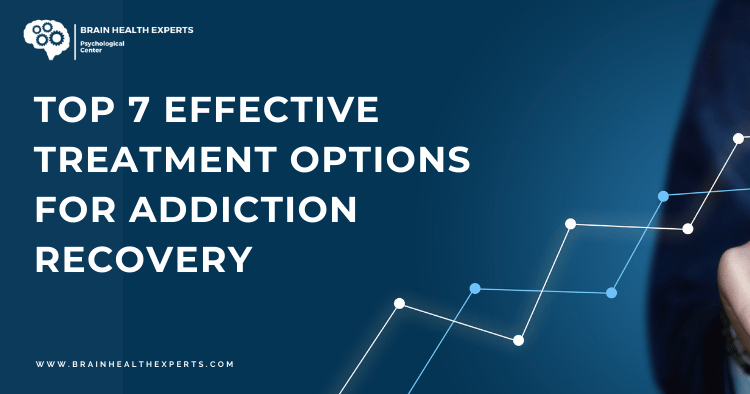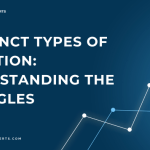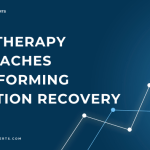Table of Contents
- Understanding Addiction
- 1. Behavioral Therapy
- 2. Medication-Assisted Treatment (MAT)
- 3. Support Groups
- 4. Inpatient Rehabilitation
- 5. Outpatient Programs
- 6. Holistic Approaches
- 7. Aftercare Planning
- FAQs about Addiction Treatment
Understanding Addiction
Addiction is a complex condition, recognized as a brain disorder that impacts an individual’s capacity to control their behavior despite the harmful consequences. It can arise from various substances, including alcohol, prescription medications, and illicit drugs, or behaviors like gambling or shopping. The journey to recovery is unique for each person, but there are several effective treatment options available that can help individuals reclaim their lives. Let’s explore the top seven options for addiction recovery.
1. Behavioral Therapy
Behavioral therapy is one of the most common and effective treatment options for addiction. These therapies focus on changing harmful behaviors associated with addiction and developing coping strategies to handle triggers and cravings.
Types of Behavioral Therapies
- Cognitive Behavioral Therapy (CBT): Helps individuals recognize and change negative thought patterns and behaviors. CBT is particularly effective in treating various mental health issues, including anxiety and depression, which often accompany addiction. For more insights on CBT, see our article on 10 Effective Cognitive Behavioral Techniques.
- Contingency Management: Provides tangible rewards for positive behaviors, such as staying drug-free.
- Motivational Interviewing (MI): Encourages individuals to identify their personal reasons for wanting to change.
Benefits
Behavioral therapy not only addresses the addiction itself but also underlying issues such as depression and anxiety, making it a holistic approach to recovery.
For more on behavioral therapy, visit National Institute on Drug Abuse.
2. Medication-Assisted Treatment (MAT)
Medication-Assisted Treatment (MAT) combines medications with counseling and behavioral therapies to treat substance use disorders effectively.
Common Medications
- Methadone: Used for opioid addiction, it helps reduce cravings and withdrawal symptoms.
- Buprenorphine: Another opioid treatment that can be prescribed in a doctor’s office.
- Naltrexone: Blocks the effects of opioids and reduces alcohol cravings.
Benefits
MAT has been shown to improve retention in treatment, reduce the risk of overdose, and decrease illicit drug use, making it particularly effective for individuals with opioid and alcohol use disorders.
Learn more about MAT from the Substance Abuse and Mental Health Services Administration (SAMHSA).
3. Support Groups
Support groups provide a community of peers who understand the struggles of addiction. They offer emotional support, accountability, and a shared experience that can be incredibly healing.
Popular Support Groups
- Alcoholics Anonymous (AA): A 12-step program for individuals struggling with alcohol dependence.
- Narcotics Anonymous (NA): Similar to AA but for those dealing with drug addiction.
- SMART Recovery: Offers a science-based approach to recovery through self-help methods.
Benefits
Support groups foster a sense of belonging and encourage individuals to share their experiences and coping strategies. They can be an essential part of the recovery journey, providing ongoing support even after formal treatment ends.
For more information about support groups, check out SMART Recovery.
4. Inpatient Rehabilitation
Inpatient rehabilitation programs provide a structured environment for individuals to focus entirely on their recovery. They typically last from 28 days to several months, depending on the individual’s needs.
Features of Inpatient Rehab
- 24/7 Care: Access to medical professionals and support staff at all times.
- Therapeutic Activities: Group therapy, individual counseling, and holistic therapies.
- Safe Environment: Removal from triggers and access to a sober community.
Benefits
Inpatient rehab is especially beneficial for those with severe addictions or co-occurring mental health disorders. The immersive environment allows individuals to develop a strong foundation for recovery.
To find accredited rehab centers, visit the National Registry of Evidence-based Programs and Practices.
5. Outpatient Programs
Outpatient programs offer flexibility for individuals who need to balance treatment with daily responsibilities, such as work or family.
Types of Outpatient Programs
- Partial Hospitalization Programs (PHP): Intensive treatment with a schedule that allows individuals to return home each day.
- Intensive Outpatient Programs (IOP): Fewer hours of treatment per week, perfect for those who have completed inpatient programs.
- Standard Outpatient Treatment: Weekly sessions for therapy and support.
Benefits
Outpatient programs are often more affordable than inpatient rehab and allow individuals to maintain their support systems while still receiving professional help.
Learn more about outpatient programs through SAMHSA.
6. Holistic Approaches
Holistic treatment options address the individual as a whole, incorporating physical, emotional, and spiritual aspects into recovery.
Examples of Holistic Therapies
- Yoga and Meditation: Promote relaxation, reduce stress, and enhance emotional regulation. For insights on how mindfulness practices can aid in recovery, check our article on 10 Mindfulness Techniques to Reduce Stress Effectively.
- Art and Music Therapy: Encourage self-expression and healing through creative outlets.
- Nutrition Counseling: Focus on healthy eating to restore physical health and well-being.
Benefits
Holistic approaches complement traditional treatments and can help rebuild self-esteem, improve mental health, and foster a sense of community.
For more on holistic therapies, check out Psychology Today.
7. Aftercare Planning
Aftercare planning is crucial for maintaining sobriety after completing a treatment program. It involves creating a personalized plan that includes support systems, ongoing therapy, and coping strategies.
Key Components of Aftercare
- Continued Therapy: Regular check-ins with a therapist to address ongoing challenges.
- Support Group Participation: Staying involved with support groups to maintain accountability.
- Sober Living Environments: Transitional housing that supports recovery in a safe environment.
Benefits
Effective aftercare reduces the risk of relapse and helps individuals adjust to life after treatment. It ensures ongoing support and resources as they navigate their new sober lifestyle.
FAQs about Addiction Treatment
What is the most effective treatment for addiction?
There is no one-size-fits-all answer. The most effective treatment combines various approaches tailored to the individual’s needs, including therapy, medication, and support groups.
How long does addiction treatment take?
Treatment duration varies based on the individual and their specific needs. Inpatient programs typically last 28 days or longer, while outpatient programs may last several months.
Can I overcome addiction on my own?
While some individuals may achieve sobriety without formal treatment, professional help significantly increases the chances of long-term recovery. It’s recommended to seek support.
What should I look for in a treatment program?
Look for accredited programs that offer a comprehensive approach, including medical care, therapy options, aftercare planning, and a supportive environment.
Recovery from addiction is a journey, not a destination. Each step you take towards healing is a testament to your strength and resilience. If you or someone you know is struggling with addiction, don’t hesitate to reach out for help. The road to recovery is paved with support, understanding, and effective treatment options that make lasting change possible.





